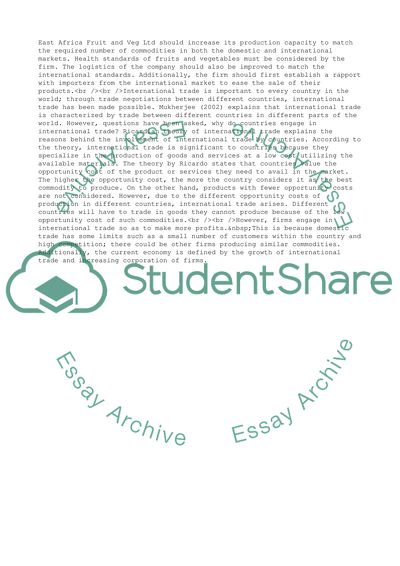Cite this document
(East Africa Fruit and Veg Ltd Export Strategy Case Study Example | Topics and Well Written Essays - 1500 words, n.d.)
East Africa Fruit and Veg Ltd Export Strategy Case Study Example | Topics and Well Written Essays - 1500 words. https://studentshare.org/business/1839538-board-paper-develop-an-export-strategy-for-an-organisation
East Africa Fruit and Veg Ltd Export Strategy Case Study Example | Topics and Well Written Essays - 1500 words. https://studentshare.org/business/1839538-board-paper-develop-an-export-strategy-for-an-organisation
(East Africa Fruit and Veg Ltd Export Strategy Case Study Example | Topics and Well Written Essays - 1500 Words)
East Africa Fruit and Veg Ltd Export Strategy Case Study Example | Topics and Well Written Essays - 1500 Words. https://studentshare.org/business/1839538-board-paper-develop-an-export-strategy-for-an-organisation.
East Africa Fruit and Veg Ltd Export Strategy Case Study Example | Topics and Well Written Essays - 1500 Words. https://studentshare.org/business/1839538-board-paper-develop-an-export-strategy-for-an-organisation.
“East Africa Fruit and Veg Ltd Export Strategy Case Study Example | Topics and Well Written Essays - 1500 Words”. https://studentshare.org/business/1839538-board-paper-develop-an-export-strategy-for-an-organisation.


